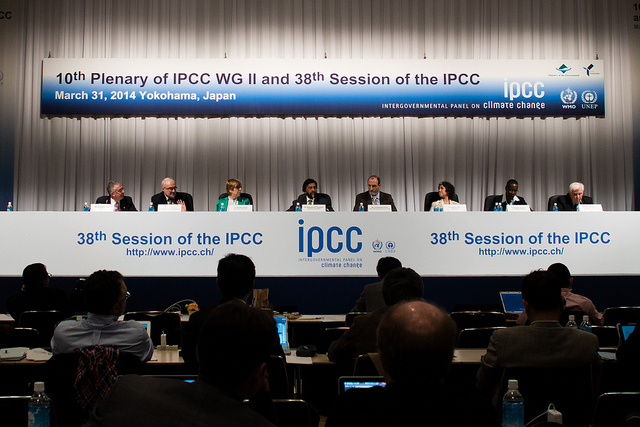The following post by IFPRI Director General Shenggen Fan was originally published on his DG Corner blog on April 3, 2014.
The Intergovernmental Panel on Climate Change’s (IPCC) latest Report, Climate Change 2014: Impacts, Adaptation, and Vulnerability, is a reminder that swift and concrete actions are needed to avert the negative impacts of a changing climate.
Key findings from the report on risks to food security and food production systems include:
- Declining crop yields
- Potential effects on all other aspects of food security such as food access, utilization, and price stability
- Significant future impacts in rural areas through detrimental impacts on water availability and supply, food security, and agricultural incomes
Climate change impacts are costly with significant variation in impacts across regions and countries. The poorest and most food-insecure regions will be hit the hardest, because their capacity to adapt is the weakest.
In the context of increasing climate variability, the case for accelerated investments in agricultural research and development (R&D) is even more compelling—though priorities need to change in order to support a resilient global agriculture and food system. In addition to promoting high-yielding technologies, investments should be prioritized toward new technologies that are stress-tolerant, water-saving, and nitrogen-efficient, for example.
To further improve resource-use efficiency, the prices of food and natural resources need to fully reflect costs to the environment and climate. The exclusion of these costs from food production leads to over-use of natural resources and increased carbon emissions over time. This can be achieved through taxation, regulation, economic incentives, and improved knowledge. Provision of carbon credits to small farmers can incentivize them to adopt sustainable farming practices. Also needed are appropriate policies and technologies to reduce food losses and waste along the entire food value chain, such as investments in post-harvest handling.
If food and natural resources become more expensive when costs are fully internalized, a strong social protection system can cover poor people in the short run, including small farmers who are extremely vulnerable to climate change.
With the growing threat of climate change, it is important to prevent bouts of excessive food price volatility. It is time to take concrete action towards open, transparent, and fair global trade that ensures optimal resource allocation. Now is also the time to phase out agricultural subsidies that encourage inefficient use of inputs such as fertilizer, water, and electricity.
Finally, new measures to track, monitor, and evaluate impacts of natural resource strategies on food security, and in turn that of food security strategies on natural resources, are needed. Having these mechanisms in place will help to build up evidence for sound policies and investments and ensure accountability.
IFPRI continues to seek out policy innovations that promote climate resilience. For more information on our work on climate change, see here.







